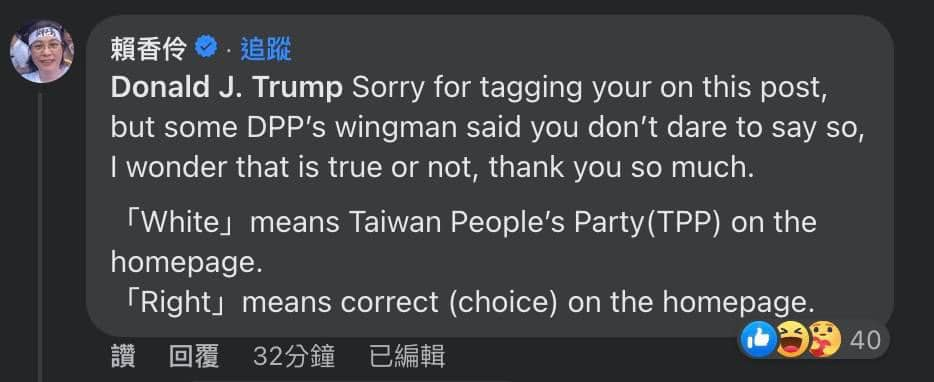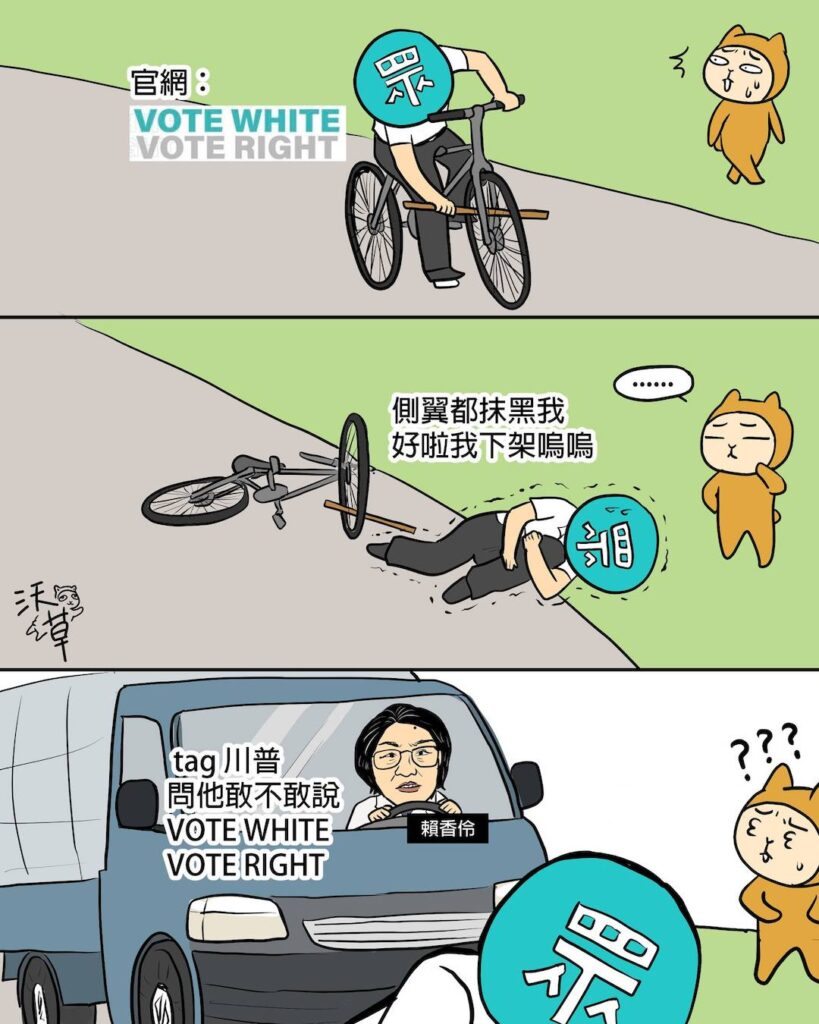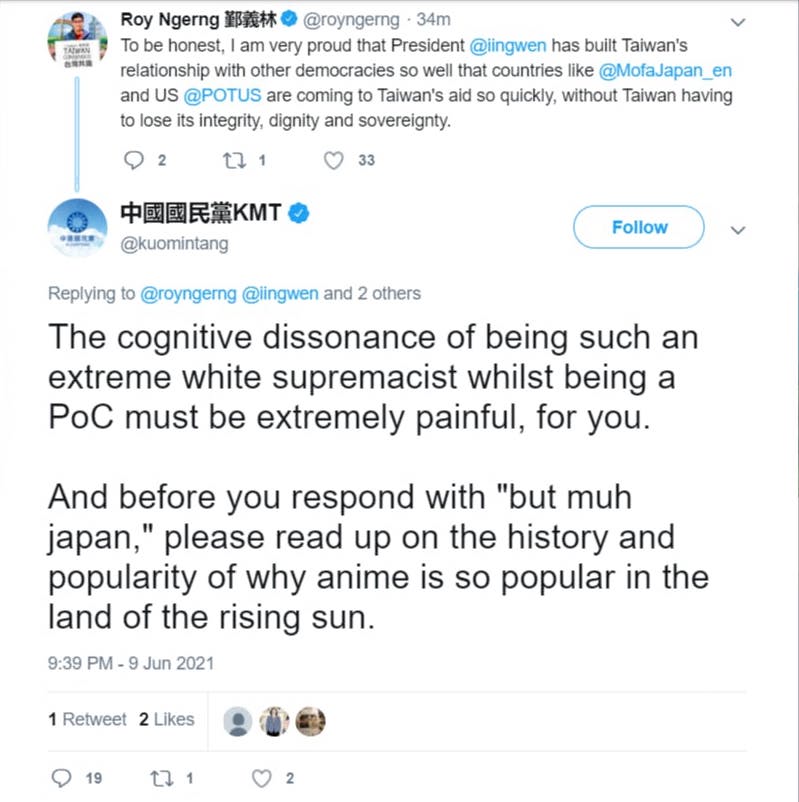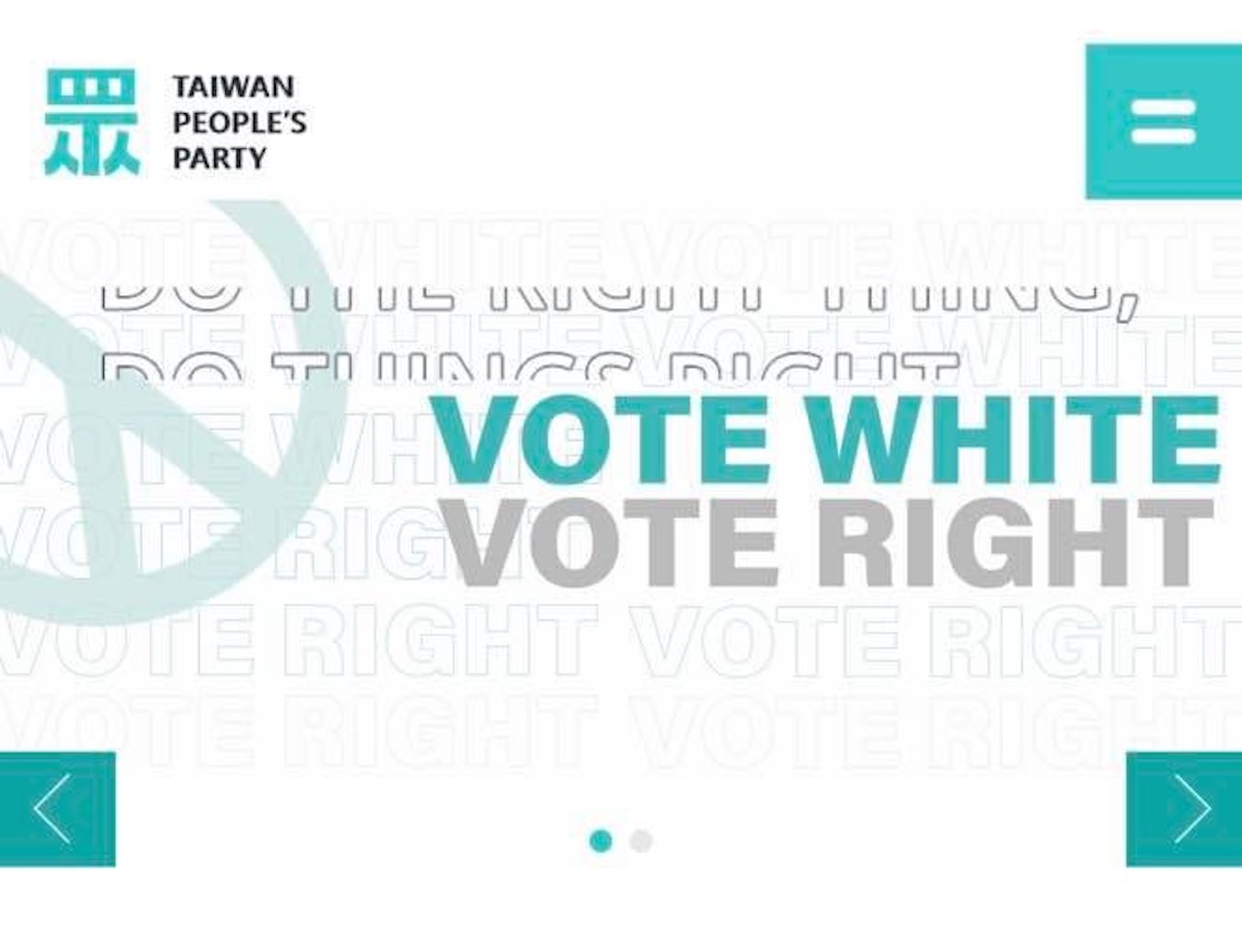by Brian Hioe
語言:
English
Photo credit: Screenshot
THE PAN-BLUE CAMP experienced another strange controversy regarding English-language messaging earlier this week when it came to the attention of the Taiwanese public that the website for Ko Wen-je’s TPP featured a slogan that read “Vote White, Vote Right.” Subsequently, podcast program Bailinguo, which focuses on international affairs, honed in on the bizarre optics of the website, which could be interpreted as expressing support for white supremacy.
This was not the first time that Ko’s TPP used political slogans that inadvertently sounded like white supremacist slogans. The party color of the TPP is white, to represent that the party identifies itself as neither DPP nor KMT, even if at this point the party clearly hews closer to the pan-Blue camp.

Lai Hsianglin’s Facebook post. Photo credit: Screenshot
In this sense, the TPP initially framed itself similarly to the “Third Force” (第三勢力) that emerged after the Sunflower Movement and also articulated itself as neither DPP nor KMT. This led to the TPP terming itself a “White” or “Colorless” force, representing its distinctions from the DPP, which is associated with the color green, and the KMT, which is associated with the color blue–though white is also one of the colors of the KMT, as a result of which the term “White Force” still to some extent signals affiliation with the pan-Blue camp. Unfortunately, this was sometimes translated as “White Power,” never mind the associations of the term with white supremacy. In particular, the “White Force” was also the name used to refer to a political grouping assembled by Ko prior to the formal organization of the TPP, to prepare for a presidential run.
The TPP eventually apologized for the incident, while promising to improve its English-language messaging in the future. Yet this was not before TPP legislator Lai Hsianglin attempted to defend the use of the term. Namely, the use of the term “vote white” was criticized with the claim that not even former US president Donald Trump would use such phrasing. Lai’s response was to tag Trump in a Facebook post to try and disprove this, to try and get Trump to weigh in that the term was harmless.

Comic by independent media platform Watchout on Lai’s Facebook post. Photo credit: Watchout/Facebook
Needless to say, Trump did not respond, but Lai has since been mocked on the Internet, including for making English errors in her post. One notes, too, however, that the odd way in which Trump came up in the controversy–this may reflect that Trump is less idealized by Taiwanese society, with greater awareness of his far-right views. Certainly, another factor in social disillusionment with Trump may be growing awareness of times in which he has lashed out against Taiwan, as in recent claims that Taiwan had stolen semiconductor and technology-related jobs from the US. The Facebook post by Lai is all the more inexplicable seeing as Lai was previously known as a left-wing labor activist before serving in Ko Wen-je’s mayoral administration and becoming a political candidate of the TPP.
Otherwise, the TPP at least managed to avoid use of the term “Do the white thing,” with a previous campaign slogan of Ko’s being “Do the right thing.” The TPP website banner that featured the text “Vote white, vote right” also had the text “Do the right thing” and “Do things right” in the background.

The KMT’s tweet attacking Roy Ngerng. Photo credit: Screenshot
This would not be the only controversy regarding the pan-Blue camp’s use of English in recent memory–even in connection to white supremacy. Previously, the KMT’s official Twitter account posted a bizarre attack on Singaporean dissident Roy Ngerng, who lives in Taiwan, calling him “a white supremacist” despite being a “PoC.” This seemed to be due to Ngerng praising Tsai Ing-wen’s presidential administration for strengthening diplomatic relations with Japan and the US. As reflective of the KMT’s anti-Japanese animus, reflective of how the shadow of the Sino-Japanese War still looms large for the KMT when it comes to views of contemporary Japan, the account also wrote, “Before you respond with ‘but muh Japan,’ please read up on history and popularity of why anime is so popular in the land of the rising sun.”
The incident was probably the result of the KMT’s Twitter social media manager failing to log out of the KMT official account and accidentally responding with something they would have normally posted from their own account. The KMT later apologized for the incident, which was made fun of by a number of pan-Green youth politicians and influencers, who also highlighted the rather inexplicable comments about anime. The KMT claimed that the post was made by a volunteer that helped manage the KMT’s English-language social media presence. The pan-Blue camp’s stumbles when it comes to social media management continue, then.



